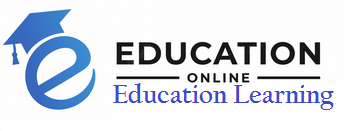Technology plays a pivotal role in modern online tutoring, revolutionizing the way education is delivered and accessed. One of the primary ways technologies are incorporated is through virtual classrooms and video conferencing platforms. These tools enable tutors to connect with students in real-time, regardless of geographical distance. This not only expands access to quality education but also allows for personalized, one-on-one interactions.
Here are some ways in which technology is incorporated into online tutoring;
Adaptive learning: Technology-driven algorithms and AI systems are used to create personalized learning experiences. These systems assess a student’s strengths and weaknesses and adapt the curriculum accordingly. Tutors can monitor a student’s progress and provide targeted support based on data generated by these systems.
Scheduling and communication tools: Online tutoring platforms often offer scheduling and communication tools that make it easy for students and tutors to coordinate sessions. These tools help manage appointments and send reminders, making it convenient for both parties to connect.
Multimedia resources: Online chemistry tutors can incorporate a wide range of multimedia resources, such as video lectures, interactive simulations, and educational games. These resources enhance the learning experience and cater to different learning styles.
Instant messaging and discussion forums: Many online tutoring platforms have chat or discussion forum features, which allow students to ask questions and interact with a level biology tutor and peers outside of scheduled sessions. These forums facilitate ongoing support and foster a sense of community among learners.
Video conferencing: Video conferencing tools like Zoom, Skype, or specialized tutoring platforms offer real-time face-to-face interaction. Tutors and students can see and hear each other, which mimics the in-person tutoring experience.
Assessment and feedback tools: Online assessments, quizzes, and assignment submission systems are often integrated into the tutoring platform. Tutors can grade assignments digitally and provide timely feedback to help students improve. This streamlined process accelerates the learning cycle.
Access to a global pool of tutors: Technology has made it possible for students to access a global network of biology tutor, allowing them to choose the most suitable educator for their needs. This diversity of expertise enhances the quality of education available online.
Progress tracking and reporting: Technology enables tutors to track a student’s progress more comprehensively. Data analytics and reporting tools help identify areas where a student may be struggling, making it easier to provide targeted support and improve overall learning outcomes.
Mobile accessibility: Many online tutoring platforms have mobile apps, making learning accessible anytime, anywhere. This flexibility caters to the needs of busy students and allows them to fit learning into their schedules.
Online repositories and e-libraries: It provides a wealth of resources at students’ fingertips. They can access a vast array of educational materials, including e-books, articles, videos, and interactive simulations. This not only diversifies learning materials but also promotes independent study and research skills.
Key Takeaway
Incorporating technology into online tutoring has not only expanded access to quality education but also enriched the learning experience. It enables students to receive personalized instruction, fosters engagement and provides valuable insights to both tutors and learners for continuous improvement. As technology continues to advance, online tutoring is likely to become even more effective and accessible in the future.

